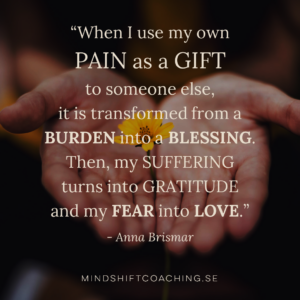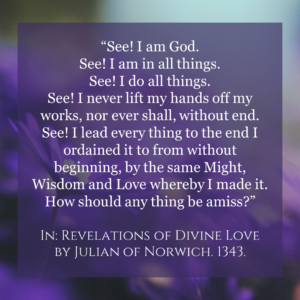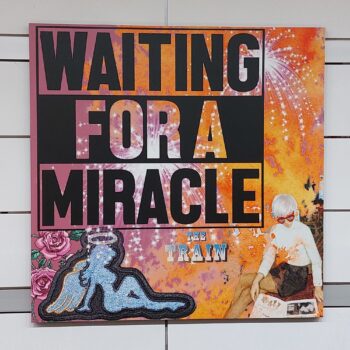
Have you ever wondered why there is so much pain and suffering in the world? Could there be a higher purpose behind human suffering? Why do some people seem to have more pain and suffering in their lives than others? Is human suffering mostly the result of “bad luck”? Or can it be due to a combination of different factors, where some are influenceable and others not. Could we avoid part of our suffering, or are we, at some higher level, “predestined” to suffer at certain points in our life?
Over the last years, I have reflected deeply on the topic of pain and suffering, and how we can endure, heal, learn, and raise ourselves beyond them. My reflections are based on my own experiences, and on the challenges shared by clients in my coaching practice, as well as on lessons drawn from books and individual stories found online.
Recently, I have come to some preliminary conclusions. I believe that there are essentially three universal purposes behind our human suffering. The first purpose relates to the personal level, the second to the social, and the third to the divine or universal level. Here is an attempt to describe these three possible purposes of human suffering common to all people:
1. Suffering as a path to personal growth
On a personal level, suffering seems to lead us on a personal journey towards greater self-understanding, self-compassion, humility, and gratitude in life. When we endure a period of great suffering (such as a serious illness, accident, or emotional trauma), we begin to question our present priorities, values, and how we have lived our life up till that point. We may start searching for answers about the deeper purpose of life, beyond material abundance, career success, social image, or other outer achievements. Some people may find the answers in ancient wisdom, a religious teaching, or a spiritual community. Some also begin a meditation or yoga practice. Regardless, most people eventually choose to turn within to find their own personal answers, leading to new insights, strength and hope.
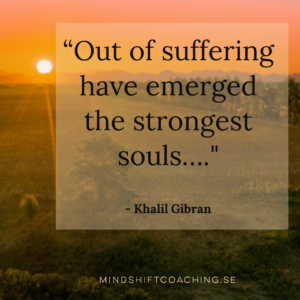
In other words, as we embark on an inner journey to understand and heal our situation, we often begin to experience life through new eyes. Things that felt plain and ordinary suddenly feel precious and important. Also, we stop taking things for granted and begin to feel greater humility, patience, gratitude, and joy in life. Similar fruits of our suffering are greater inner strength, wisdom, understanding and insight. Finding meaning in our suffering can be the difference between giving up OR surviving and reaping the gifts in disguise (as Viktor Frankl shares below). The following quotes reflect some of these ideas:
- “Suffering is part of our training program for becoming wise.” (Ram Dass)
- “No one escapes pain, fear and suffering. Yet from pain can come wisdom, from fear can come courage, from suffering can come strength – if we have the virtue of resilience.” (Eric Greitens)
- “When I planted my pain in the field of patience, it bore fruit of happiness”. (Khalil Gibra)
- “It is here that we encounter the central theme of existentialism: to live is to suffer, to survive is to find meaning in the suffering.” (Viktor E. Frankl)
- “We are healed of a suffering only by experiencing it to the full.” (Marcel Proust)
2. Suffering as a doorway to greater service to others
On a social level, suffering can become a doorway to developing and expressing greater compassion for other people, as well as a desire to be of service to others. Often, persons who have experienced great adversity in life, such as a life-threatening disease, a serious accident, or the loss of a loved one, suddenly feel a strong urge to help others who are faced with a similar situation. Following upon their painful experience, they may choose to quit their jobs, embark on a new education, start a new job, or build a private business with a strong mission. By learning from our suffering and sharing our experiences and lessons with others, we can transform our pain into a gift to those who experience a similar situation as we have.
3. Suffering – becoming a channel for Unconditional Love
After a prolonged period of suffering with little hope or help from the outside world, many people begin to seek help and answers in alternative modalities or deeper spiritual teachings. Some may turn to alternative healing methods, such as energy healing, while others look for guidance in ancient spiritual teachings (for example Christian mysticism) or in philosophical traditions (for example Buddhism). Still others may search for new ideas in positive real stories, such as those of spontaneous healing. Near-death experiences (NDEs) can also be a valuable source of hope and inspiration, providing a refreshing and “higher” perspective on human suffering. Still others may deepen their meditation or yoga practice and have their own mystical or uplifting experiences.
Over time, our awareness may expand to the point where we begin to connect more fully with our inner truths, our Soul (or Essence), and ultimately with God within (as a Divine Presence). At this stage, some people may grow a desire to become channels of unconditional Love and Peace for the world. Perhaps you have heard the song “Make Me a Channel of Your Peace”, which is based on a poem called the Peace Prayer of St. Francis. The poem describes beautifully the anonymous author‘s yearning to become a channel for God’s unconditional love in the world – a longing that may be awakened in us too, through a prolonged period of suffering. As Victor Hugo wrote, “It is by suffering that human beings become angels.”
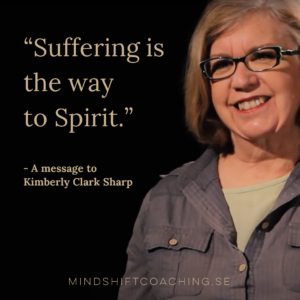
A woman named Kimberly Clark Sharp shares her extraordinary experience, which happened to her as a young teenager. One day, she suddenly became seriously ill, fell to the ground, and had a so-called near-death experience (NDE). In her NDE, she had a profound conversation with God, in which she received universal messages about the higher purpose of human suffering and pain. Upon asking God “Why do we want to be born?”, God answered her that Earth is perfect for us as a school, as a place to learn about giving and receiving love, as well as about hard knocks, pain, and suffering. “But why is there pain and suffering?”, she asked. She was answered: “That is the way to Spirit”. She was told, that sadly, we do not turn to God or prayer, and we do not look outside of ourselves, except under stress (or great adversity). But, as she understood, that was all perfect in the mind of God. In my interpretation, this message would imply that there is in fact a divine or higher purpose behind our suffering, and that – in essence – suffering leads us to a remembrance and reconnection with God (or the Divine within).
Some final words…
Fortunately, with some dedicated inner work, meditative practice, social support, and personal guidance (by a spiritual mentor, coach, therapist, healing practitioner or wise soul), our suffering can be greatly reduced and far more bearable. Ultimately, we can begin to harness its precious fruits, for the benefit of our own development, the life quality of others, and humanity as a whole.
Lastly, some wise words of encouragement:
- “Pain is temporary. It may last a minute, or an hour, or a day, or a year, but eventually it will subside and something else will take its place.” (Lance Armstrong)
- “One word frees us from all the weight and pain of life, and that word is Love.” (Sophocles)
- “The wound is the place where the Light enters you.” (Rumi)
The beautiful quote by Julian of Norwich’s in “Revelations of Divine Love” also gives great encouragement in times of pain and suffering (see image).
If you are experiencing a period of pain and suffering, please do not hesitate to reach out to somebody, for example a friend or a family member. And I will be here for you too whenever you are in need.
Also, if you wish to subscribe to my newsletters, please send me an email or fill in the subscription form here.
Warm blessings,
Anna

